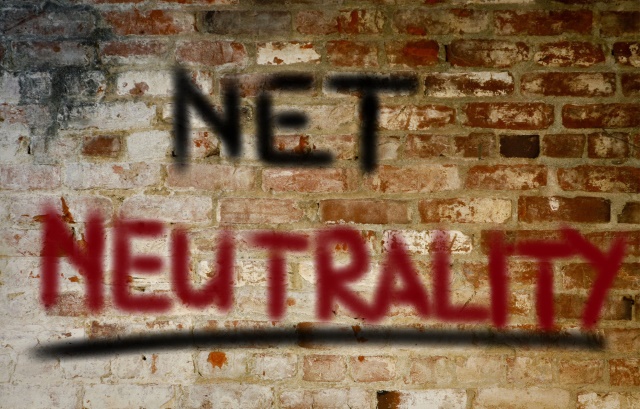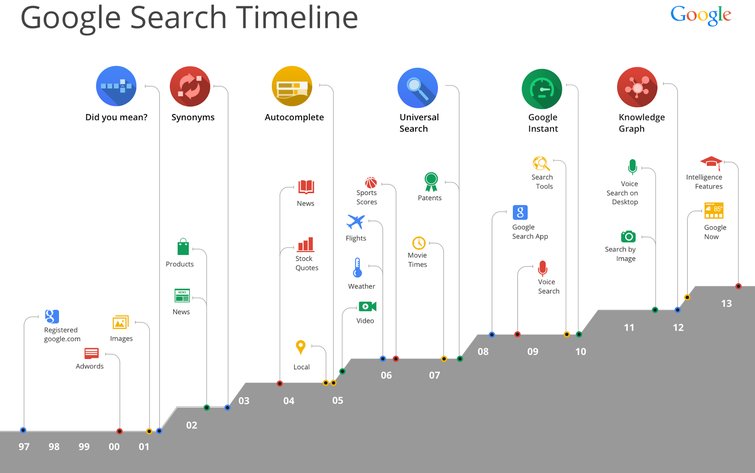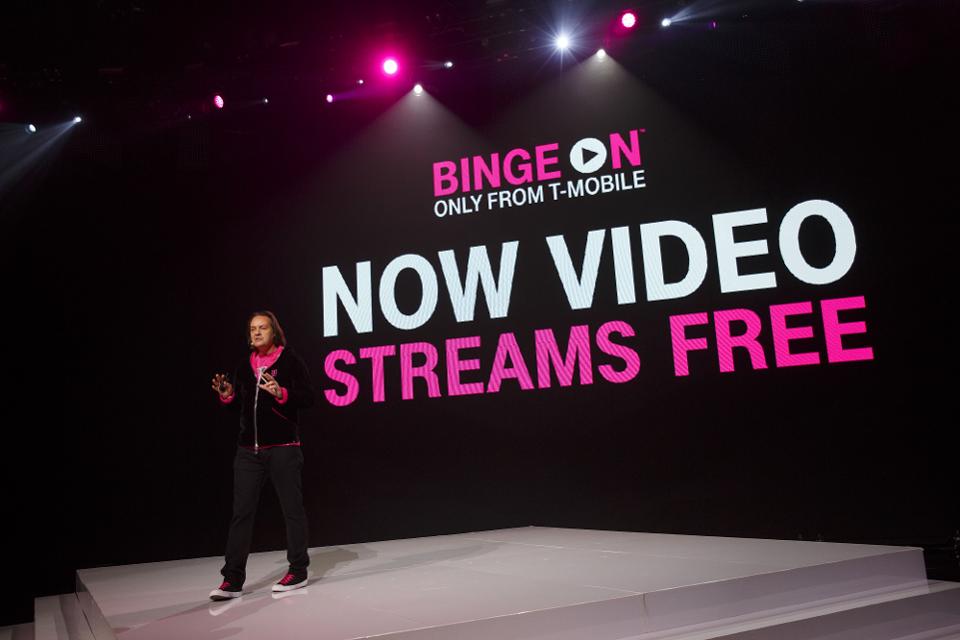The case against Net Neutrality: An IT pro's perspective

As the vote to determine the fate of Net Neutrality regulations looms in the FCC, I've been taking a harder look at where I stand on the issue. Personally, I've got vested interests as a consumer that relies on many net-connected services in my daily life. And professionally, I own an IT business that lives and dies by the availability of countless net-centric ecosystems. But every angle from which I examine the issue upon, I keep coming back to a common conclusion: Net Neutrality just isn't needed.
Before you slam your keyboard and roll me in as some blind Trump admin shill, I want to be transparent about my background. I've been working professionally in the IT industry for almost 13 years now, and have run the Managed IT Services tech business FireLogic for the last 8 of those. That's in addition to a Master's degree in IT PM, countless tech certifications, and being on the SME advisory committee for the globally recognized Computing Technology Industry Association.
Do I consider myself an expert on Net Neutrality? Absolutely not, as there are not enough hours in the day and too much to tread through. But as someone more in-tune with the IT world than the average Joe, and one whose entire professional well being depends on the net as know it, I would hope my opinion has the optics of looking inward as a curious outsider like the rest of you.
And just to clear the air, I don't own stock or investment interest in any of the players who are supposedly going to "gain" big time if Net Neutrality is overturned. The Comcasts, the ATTs, the Time Warners, to name a few. These are the same behemoths that my technical team has the pleasure of working with daily to call them out when their internet lines fail my clients. If my sarcasm wasn't clear enough, these guys are far from being my "friends." But things could be worse; we could have the joys of having a single ISP like many totalitarian nations force upon their citizens.
While I may not change anyone's mind about their position regarding Net Neutrality, the opposing viewpoint seems to be completely brushed under the rug recently. Between being maligned as a position being pushed by Russia or one which only corporate fat cats could possibly enjoy, the negative press tied to this position is stifling honest, legitimate debate.
So, how the hell could I oppose Net Neutrality?
There was a 'net before Net Neutrality
It's funny to read some of the press and listen to the talking heads discuss Net Neutrality. Admittedly, even some from my industry, have this fervent push of a talking point which can be summarized like this: "If we repeal Net Neutrality, the internet as we know it will go to sh*t." I feel compelled to interject on these pundits at times with an "Excuse me?" reaction because this tendency to cry wolf begs one big question.
What did the internet look like before Net Neutrality? Exactly like the same one we enjoy today.
It was the same net which allowed AOL and Yahoo and Google to spawn, competing on a field of feature sets and ways to make our digital lives easier to manage. It was the same net which allowed us to make endless piles of data available to all fingertips, and one which IBM claims an overwhelming amount of this data (90 percent) was created only since 2016. This same net fostered the near universal adoption of Email as a global standard, along with Voice over IP (VoIP), and the ability to spin up what seems to be almost Anything-as-a-Service (XaaS).
This same pre-Net Neutrality timespan allowed online gaming to go from novelty to worldwide phenomenon. It allowed social media to move from something that was only cool for college students to a category which has spawned Facebook and numerous other clones. This period saw newspapers and magazines have their web presence go from pure accessory to absolute necessity. Online banking, investment trading, shopping and endless other web-first entities were all able to find an audience and mature into the staples of daily life they are considered today.
And over this same exact period, we went from (now mocked) 56K dial up being the sole way to get online -- to where we now have dizzying mediums of cable, fiber, DSL, ISDN, T3, Point to Point Wireless, and cellular options all competing for subscribers, offering better overall speeds than we could have ever have imagined just 20 years back.
How about Android, iOS, BlackBerry, Windows Phone, Palm, and all the other mobile platforms of yesteryear? Yep, they too benefited and simultaneously helped foster the adoption of all things web we enjoy on the go. And now we have the Amazon Alexas, the Google Assistants, and Microsoft Cortanas of the world pushing the edges of AI, powered by the same internet, no thanks to any Net Neutrality.

Google was born and grew into the IT giant that it represents today -- all without any Net Neutrality. In a highly competitive field of dozens upon dozens of search engine options in the mid to late 1990s, Google innovated its way out to the top of the pack. The argument that we need Net Neutrality to level the playing field has no grounding in how much of the current web came into shape. And it turned out pretty well, huh? (Image Source: Tom's Hardware)
It may sound a bit surprising, but guess what? This rich ecosystem of services, hardware and web categories were all born and baked in the same free market of competition pre-Net Neutrality -- and they succeeded. They succeeded without needing any artificial crutches or government oversight in the form of what is now billed as Net Neutrality.
In discussions I've had, the pro-Net Neutrality folks quickly bounce back at me to say they admit these innovations are bountiful. But, and there's always the but from them, they say what about all the endless examples of ISPs/Telcos overstepping and behaving poorly?
They claim that these in fact are the reasons we need Net Neutrality.
Yet I'm always curious as to what examples stand as the feathers in this cap of ISP misbehavior. The real world instances, while not inexistent, are quite limited, to be exact. Most people point me to Comcast and their BitTorrent throttling efforts over a decade ago. Some mention ATT's efforts to disable FaceTime usage over cell service back in 2012. Beyond that, it's usually crickets or "let me Google it..."
The unfortunate truth is: many real world examples of "bad behavior" by big players just don't exist. I tried to find as concise of a list that was published online quantifying all of the known incidents which Net Neutrality would have "prevented" and one of the best ones is provided by Free Press. They seem to be clearly in the pro-Net Neutrality camp and the best they could document was an unflattering list of... wait for it... 12 incidents.
Keep in mind that the internet as we know it has been publicly in use for over 20+ years already, and internet access is now officially used by more than half of the planet's population. The scant number of instances where ISPs truly behaved in a manner against the greater good were either 1) resolved by existing government regulation already in place, or 2) by natural free market movement that punished them with the all-too-forgotten dollar vote. Examples of where an ISP ran afoul of established practice norms and hit some 'home run' in increased subscribers or record revenues are, not surprisingly, extremely hard to point to.
And my argument comes back full circle to highlight the fact that government taking a hands-off approach to the internet has only been beneficial to society at large. Josh Steimle, of Forbes, had the following keen observation on government being a common denominator when it comes to underperformance and stifling innovation:
Think of an industry that has major problems. Public schools? Health care? How about higher education, student loans, housing, banking, physical infrastructure, immigration, the space program, the military, the police, or the post office? What do all these industries and/or organizations have in common? They are all heavily regulated or controlled by the government. On the other hand we see that where deregulation has occurred, innovation has bloomed, such as with telephony services. Do you think we’d all be walking around with smartphones today if the government still ran the phone system?
I've personally written about government's wonderful record of proud accomplishments in the IT sector. One such example was my post mortem writeup on the stinking mess that crashed on the launchpad, aka Healthcare.gov. Another was the bright idea of regulation trying to enforce internet sales tax across the dizzying 3007 total counties that make up the USA on a local level. In case you didn't catch it, the biggest arbiter with monopolistic power in the USA is the federal government and their track record of managing anything other than war is pathetic.
No one's arguing for allowing the internet to become a wild west where corporations can run amok. But to think more regulation, more red tape, and more bureaucracy will equal BETTER access and CHEAPER prices is a wildly mistaken notion.
T-Mobile's Binge On: If Upheld, Net Neutrality Would Make This Illegal
Another area that trips up my pro-Net Neutrality comrades is their uneasy skirting around the raw fact that awesome innovations which benefit customers would be the first things killed off if the FCC upholds these crazy regulations.
Case in point number one, and something many netizens are aware of, is T-Mobile's Binge On. The aggressive cell service provider advertises this value-add for their customers as a way to use specifically chosen media services without nicking one's overall data allotment. Content juggernauts like YouTube, Amazon Video, and Netflix can be consumed nonstop on T-Mobile phones due to what is known as a technical "zero rating" from the cell carrier for that tagged content.
Many of my techie friends brag about this capability and indeed a number of them chose T-Mobile solely because of this benefit. I'm personally on Google's Project Fi cell service and can't take advantage of this (yes, jealous at times). If you're a heavy media consumer of these certain content providers, then T-Mobile is a darn good deal for a large number of subscribers.
But according to many outlets, including industry watchdog the EFF, Binge On is a clear violation of Net Neutrality rules because it is nothing more than an obfuscated throttling scheme. While those users who love eating up gigabytes worth of Netflix on the go may disagree, T-Mobile is in essence picking "winners and losers" in the media consumption war because its subscribers are being given preferential treatment for using Binge On-approved services.

Many T-Mobile customers switched to the carrier solely to take advantage of Binge On, a perk that allows specified content providers like Netflix to be "zero rated" against a data plan. Strict enforcement of Net Neutrality, if upheld, would make such masked throttling schemes likely illegal according to the EFF. Many Net Neutrality proponents refuse to acknowledge that customers end up losing due to these regulations. (Image Source: Forbes)
I'm personally a subscriber of YouTube TV, and as an aside, LOVE the product a ton. But Binge On doesn't consider that a zero-rated service on its list. Neither is Microsoft's Mixer game streaming service. The same goes for its wildly popular competitor, Twitch. Under the eyes of Net Neutrality, all of these excluded content services not invited to the Binge On party could make formal complaints to the FCC that competing vendors are being given unfair preferential treatment. Such exclusion could very well harm their own subscriber base, they could argue, and T-Mobile should be held to a standard of being a "content agnostic" telco due to its market position.
T-Mobile's own spokespeople aren't arguing with the above notions. They were quoted telling Wired that services not on the Binge On list will definitely get throttled (something Net Neutrality rules hate) and the same goes for downloading media for offline viewing from websites that aren't on T-Mobile's special list.
Why is this example so emblematic of the issues with Net Neutrality? Because for the sole fact that without Net Neutrality, the free and open market allowed something like Binge On to spawn. It's one of the many reasons T-Mobile has turned around its image from being a cruddy 4th place "value" carrier to now upending and holding against Verizon in customer satisfaction.
How much of a factor does Binge On play in customers' opinion of T-Mobile? That's hard to pinpoint, but it can't be argued that this doesn't play some role in their rise in the rankings and customer uptick.
The bigger moral of my point here is that such examples of great innovation which truly benefit customers will be killed, and others never even born, if Net Neutrality's 400 pages of red tape are upheld.
Herein lies the problem with how the media, and especially the tech media, portrays the arguments in favor of Net Neutrality. Very few reports cover the scant scope of reported incidents of purported Neutrality violations and instead pile into the MeToo bus backed up by theoretical, hypothetical, mere possible routes that could be used to harm consumers. These are many of the same folks who probably love their Binge On from T-Mobile and would love for Net Neutrality to carve out some nice exception for this type of offering.
And another exception for the next great idea, and perhaps one more for something still yet not released to market -- all by using convenient twisting of interpretation, as many online have leveraged to try to explain why Binge On is exempt from such regulation. The actual effect of Net Neutrality then, if history is any judge, would be diluted to the point of just another government regulation which achieves none of its original goals of helping consumers.
Don't we all want another fruitful 20+ years of internet-driven innovation and expansion like we have seen since the mid '90s?
Then let's follow the pattern that has proven to have worked and get government bureaucrats out of the business of controlling the internet. We've gotten this far without them and we've admittedly done pretty well.
Image credit: Krasimira Nevenova / Shutterstock
 Derrick Wlodarz is a seasoned IT Specialist who owns Des Plaines, IL (USA) based Managed IT Service firm FireLogic. He has 12+ years of IT industry experience across the private and public sectors, with numerous technical credentials from Microsoft, Google, and CompTIA. He specializes in providing SMB clients with managed IT support, consulting, and training. Derrick is a long-serving member of CompTIA's Subject Matter Expert Technical Advisory Council that shapes the future of CompTIA exams across the world. You can reach him via email at [email protected].
Derrick Wlodarz is a seasoned IT Specialist who owns Des Plaines, IL (USA) based Managed IT Service firm FireLogic. He has 12+ years of IT industry experience across the private and public sectors, with numerous technical credentials from Microsoft, Google, and CompTIA. He specializes in providing SMB clients with managed IT support, consulting, and training. Derrick is a long-serving member of CompTIA's Subject Matter Expert Technical Advisory Council that shapes the future of CompTIA exams across the world. You can reach him via email at [email protected].
